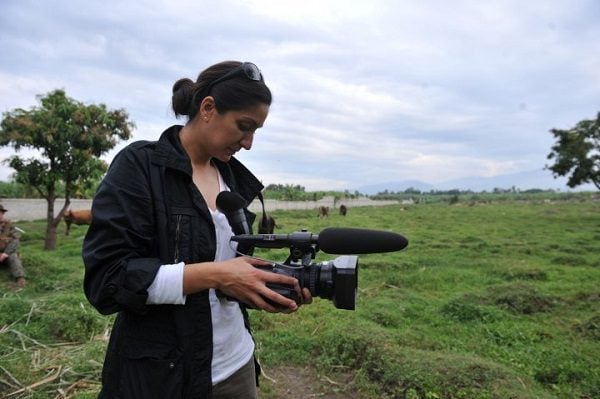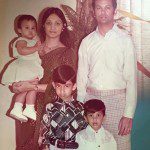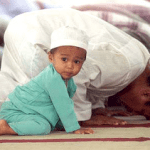
This is Day 23 of the 2017 #30Days30Writers Ramadan series – June 18, 2017
By Amna Nawaz
It often surprises the people in my life to learn I’m fasting during Ramadan. Many of my friends and colleagues, the majority of whom aren’t Muslim, assume that faith isn’t a big part of my identity. To be fair, the clues they’ve been told to look for – through portrayals of Muslims in entertainment and media – aren’t there. I don’t cover my head. I don’t pray five times a day. I didn’t marry a Muslim man. I’m not “The Muslim” they expect to see.
In discussions about Muslim Americans or Muslim identities, I’ve actually had friends say to me, “But you’re not really Muslim, right?”
My faith is an intensely personal part of who I am. And, the place it holds in my life has evolved, taking on new and different meanings at different times. Growing up, I was raised to believe that being a “good” Muslim was synonymous with being a “good” person. Our faith was the source of our morality. Treat others with kindness and compassion. Be humble. Give to those in need. Recognize your blessings. Be grateful. And strive to be better.
It is fair to say that many of those lessons ultimately helped lead me to my career, in journalism.
It is also fair to say that my faith has ebbed and flowed over the years. It’s been weakened by doubt. By neglect. By fear. The only adult life I’ve ever known in my home, here in America, is one in which my religion is under scrutiny and suspicion.
The studies enumerating the spread and scale of Islamophobia are statistical versions of the individual stories we’ve all been sharing, among friends and family and community, for years now. Those things happened, and continue to happen, to our fathers, our mothers, our siblings, our cousins. They happen to us.
So yes, my faith has been tested.
But it’s also been strengthened. Out of necessity. Out of joy. Out of familiarity. I see things and hear stories, in this job, that require a willingness to believe that things can get better. That they will get better. That even the worst of disasters and the worst of humanity can be overcome by love, by good or by some higher power. My faith holds me up in those times.
I’ve welcomed two girls into this world, and with each of their arrivals, there is nowhere to turn with that level of unparalleled gratitude, than to faith. And as my husband and I raise those girls – to be good, kind, brave travelers on their own paths – we now pass on the traditions in which we were raised.
Which brings me back to Ramadan.
As a young girl, I watched my parents observe their fasts from sunrise to sunset with grace and humility and good spirit. My girls, today, are just becoming old enough to recognize that for one month each year, Mama does the same. When I, as a child, asked my parents why we fasted, they would tell me the story of our faith. They would remind me of their deep gratitude and many blessings. And they would organize even more charitable work than usual.
I would listen, and watch, and learn. Today, when my girls begin to ask why I fast, I get to tell them the same stories, remind them of the same lessons, and allow them to join in the same kinds of charity.
The end of Ramadan still holds some of my strongest childhood memories. Eid, for us, meant community. Gathering with the friends who’d become like family. Crowding into each other’s homes with children running from room to room. Aunties pinching cheeks and Uncles ruffling hair. Balancing heaps of food on our plates so as not to spill on our new clothes, with dupattas tied securely behind our backs.
This Eid, my girls will wear their new clothes, and run around their grandparents’ home, with bellies and hearts full. Surrounded by their family and friends.
And they will grow to know that their faith is not comprised by what they put on display for the rest of the world. It is made up of the many parts of what makes them who they are. It is made up of strength, and hope and love.
Amna Nawaz is an Emmy-award winning journalist in New York. She currently works as an anchor/reporter at ABC News, hosts the “Uncomfortable” podcast for ABC News Radio, and previously worked for NBC News. Her work has appeared on Al Jazeera, PBS, MSNBC, and The Young Turks Network. Her story has been featured on Buzzfeed, Comedy Central, and in Audrey Magazine. Follow her online @Nawazistan.












